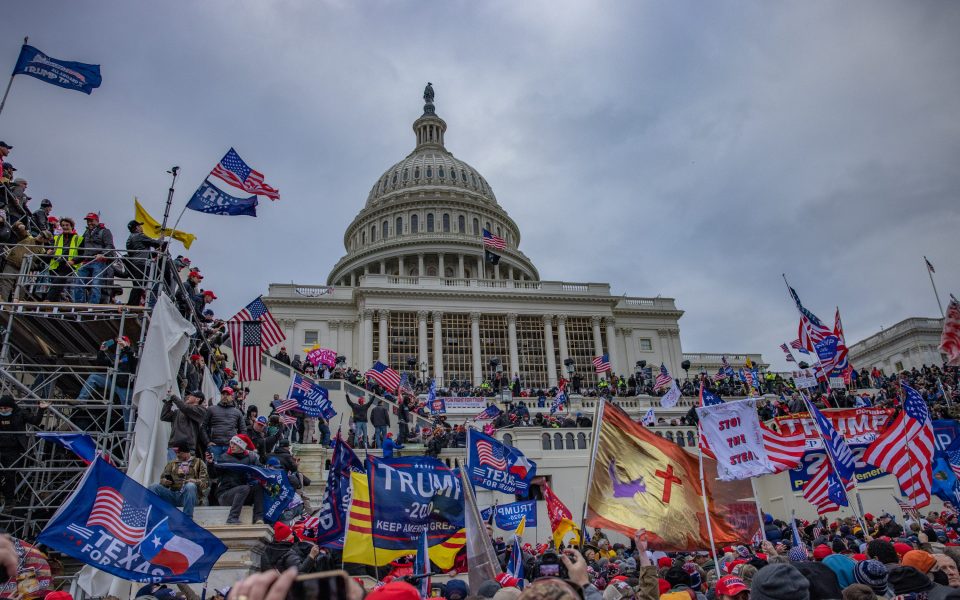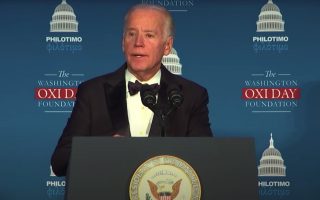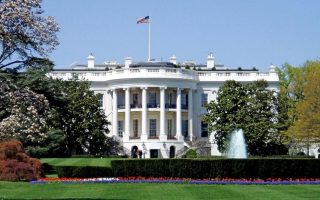Revisiting the social contract

Over the last year, America’s streets were littered with the kind of images that would prompt one to wonder whether this was the state of nature that Thomas Hobbes wrote about. This summer’s looting, the lunacy of the January 6 insurrection on Capitol Hill, carjackings in broad daylight in downtown Chicago and the social antagonism that they all evidence make Hobbes’ observation that a state of nature inevitably becomes a “state of war” ring true.
But unlike the pessimistic backdrop the philosopher of Malmesbury develops his theory against, government (or the Leviathan) did exist and was not able to prevent – or even contain – these examples of violent anarchy. What went wrong, what does it mean for America’s role in the world and for international peace and stability?
In the early 1990s, as scholars and policy makers searched for a paradigm that could define the post-Cold War world, Francis Fukuyama penned his famous “End of History,” declaring that the world had not just reached “the passing of a particular period of post-war history, but the end of history as such: That is, the end-point of mankind’s ideological evolution and the universalization of Western liberal democracy as the final form of human government.”
This conclusion was not as outlandish then as it seems now. Liberal democracy was on quite a run, delivering a better standard of living than any other system. The Iron Curtain was no more. China was not rising but reeling from the diplomatic isolation that followed the Tiananmen Square Massacre.
All this masked the fraying of a social contract on which the success of liberal democracy was premised. Automation and expanded – and often unrestrained – trade drastically robbed a country that trumpeted its Protestant work ethic in entire categories of jobs. Trust in government “doing the right thing always or most of the time” went from 77% during the Kennedy administration to 29% by the time “The End of History” was published (it fell to 17% during the Trump Presidency). A generation raised on JFK’s admonition “Ask not what your country can do for you, but what you can do for your country” gave way to one raised on Gordon Gekko’s mantra (from the movie “Wall Street”) “Greed is good.”
After liberal democracy suffered the twin shocks of Brexit and Donald Trump’s election, the Financial Times’ Ed Luce published his “Retreat of Western Liberalism.” Luce argues that economic growth and the standards of living and social mobility that emanate from it is the “glue” that holds liberal democracies together.
Over the last decade in the West, growth has stalled, the competition for good paying jobs has intensified, and the focus has shifted from growing the middle class to a zero-sum game mentality. If anyone captured the pulse of why people are angry, it was Democrat Congressman (and one time Presidential candidate) Tim Ryan – whose intense speech on the floor of the House of Representatives went viral this week.
Congressman Ryan exclaimed: “In the late 70s a CEO made 35 times the worker, today it is 300-400 times the worker. And our friends on the other side [are] running around with their hair on fire [saying]: ‘Heaven forbid that we pass something that’s going to help the damn workers in the United States of America. Heaven forbid!”
Some point to the stock market as proof of a booming economy. But the price of healthcare, housing and higher education – all against the backdrop of stagnant wage growth and decreasing job security for the average American – have made a growing economy something the average American is more likely to read about than experience. Alexi Giannoulias – the former state treasurer and current candidate for secretary of state in Illinois – declared in a campaign ad this week, “Too many Americans cannot afford the American Dream anymore, and many don’t even believe it is possible.”
Why is this relevant to the rest of the world, when numerous countries have their own domestic economic struggles to deal with? To start with, this situation has introduced a dangerously high level of political instability in America.
Paradoxically, the Tea Party and the new generation of Democratic Socialists, the January 6 insurrection and the riots of this past summer are all linked: Americans of all political persuasions believe the social contract is broken, and they are blaming someone.
To cure this political instability, both left and right are reprioritizing spending at home. This is natural, and it is good policy. After all, it is economic strength and economic growth that provide the underpinning for any country’s global leadership. Yet the adoption of a zero-sum mindset on both the right and left is what should worry the world. International trade has become a boogeyman for both.
Going beyond stopping “endless wars” and decreasing the American military’s global footprint is a goal for both. They both rage against China, but neither seems to have a tangible plan for winning the competition for global influence that China is waging.
The world is welcoming the fact that America “is back.” Yet to secure America’s permanent return to global leadership – not only in hard power, but as a good example of a liberal democracy – it is going to take more than a proclamation from President Joe Biden; it is going to take widespread buy-in from the American public, and the willingness of the same to devote the necessary resources and political capital to that end.
The future of liberal democracy may in fact hinge on the economic debates that are about to be waged in America.
The combination of Covid-19 and automation means that too many of the past year’s layoffs – up to 42% – may become permanent jobs losses. Both the Trump and Biden stimulus packages are evidence of a growing consensus in favor of direct cash payments. Is universal basic income going to become a major feature of the American economy of the future? Will the upcoming debate over infrastructure provide a blueprint for how workers in the hydrocarbon industries, and those who depend on the pricing of those sources of energy, can benefit from a greener energy infrastructure?
The answers to these questions will determine how active America will be in the world as much as any statement by Secretary of State Antony Blinken, and they will certainly determine whether an “end” to history with liberal democracy triumphant can ever be possible. If the world wants America to lead again, it must cheer on the rewriting of the social contract that makes the American Dream a reality once more.
* Endy Zemenides is the executive director of the Hellenic American Leadership Council (HALC).





